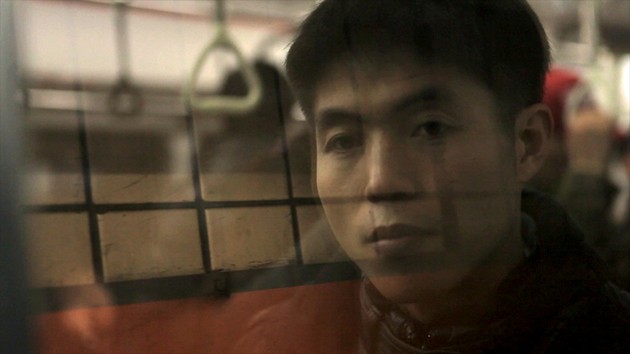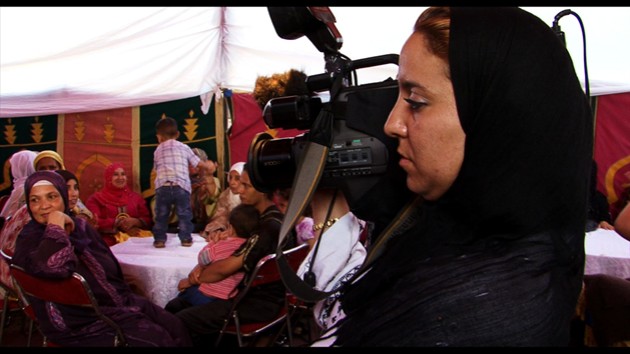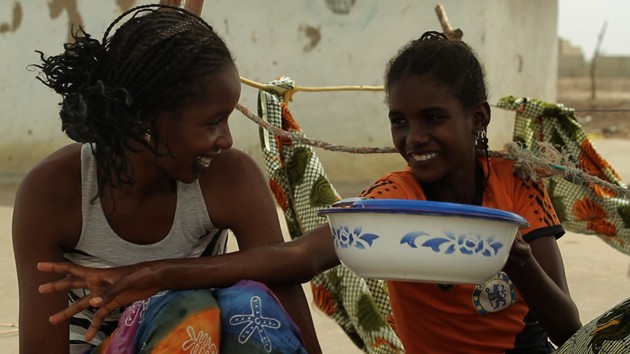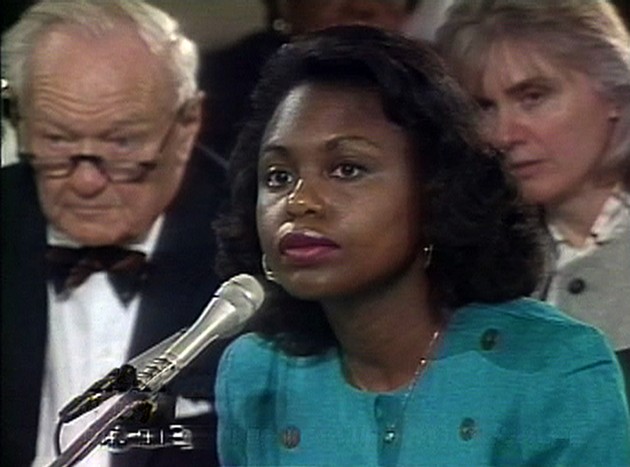ANITA (Frieda Mock)
The opening night film, Anita gets into the nuts and bolts of Anita Hill's testimony against Clarence Thomas concerning charges of sexual harassment in 1991 during his Supreme Court confirmation hearing. It goes well beyond the sensationalistic details of Long Dong Silver and pubic hair on Coke cans to explore the circumstances behind her testimony, Hill’s background, and her life before and after her time in the spotlight.
The film is very solidly on Hill's side, as is to be expected, and Hill is largely credited here with opening up a national conversation on sexual harassment in the workplace, which was not much talked about in public up to that point. Including extensive interviews with Hill herself, as well as other key figures in the case, Mock compellingly conveys the full story of what it was like for Hill to be "in the political lion's den," in the words of one interviewee.

CAMP 14 - TOTAL CONTROL ZONE (Marc Wiese)
A major highlight of this year’s fest is this documentary, which tells the harrowing story of Shin Dong-hyuk, a survivor and escapee of the titular North Korean labor re-education camp. He tells this story himself with compelling narrative detail, and director Wiese surrounds Shin’s narration with elegantly composed visuals and animation, which illustrates his life in the camp.
Shin was born in Camp 14, the child of two prisoners forced to be married by the wardens, so all he knew of the world was hunger, forced labor, beatings and torture. Shin tells his story sitting on the ground in his spartan apartment in South Korea, with an eerily calm demeanor that thinly masks deep chasms of complex emotions. Shin’s continuing trauma and difficulty adjusting to life in South Korea are sensitively conveyed here.
Shin’s astonishing story, including how he informed on his own mother and brother for infraction of camp rules, is buttressed by two other interviewees whose testimony is equally astonishing. There have been a number of other films on this subject, but this is the first I know of that includes interviews with the guards and police who perpetrated some of the worst atrocities against prisoners. Two of them speak in the film, now also defectors living in South Korea. One is a former camp guard, the other a former member of the North Korean secret police who arrested people and deported them to the camps. They both speak, with a rather chilling absence of emotion, about how they tortured, killed, and raped the victims of the state terror that they helped to enforce.
These dispatches from the other side of the North Korean power structure afford us a unique perspective and a deeper understanding of the horrific situation that untold numbers of people continue to suffer under.
(June 20, 9:30pm; June 21, 6:30pm)

CAMERA/WOMAN (Karima Zoubir)
This documentary follows Khadija, a Moroccan woman who works as a professional videographer shooting weddings in her hometown of Casablanca. The lush, elaborate, celebratory wedding parties that she films contrast sharply with her troubled home life. Khadija is herself a divorcee raising her 11-year old son by herself, and lives with her mother and brother, who strenuously disapprove of her work and the lifestyle associated with it. In the conservative, traditionally Islamic society in which she dwells, being a divorced woman is seen as shameful, and the fact that the parties often run late into the night, requiring her to be out herself at those hours, is also a source of conflict with her family.
The fact that she is the breadwinner of her family, and that they survive mostly on her income, seems to matter little in terms of earning her family’s respect and understanding. Khadija goes through much stress and heartache in dealing with this situation, even though she nevertheless enjoys her work and the personal freedom and self-sufficiency it affords her. She commiserates often with her best friend Bouchra, also a divorcee, and they often cry together about their difficulties with their families, and the impossible position their society often places them in.
Although the film technically isn’t the most polished, and some of the conversations feel staged for the camera, Zoubir nevertheless offers a sensitively portrayed look at how women are often caught in the middle of traditional Islamic societies’ clashes with modernity.
(June 16, 9:15pm; June 18, 6pm)

TALL AS THE BAOBAB TREE (Jeremy Teicher)
One of two fictional features in this year’s festival (albeit one with very strong documentary elements), New York-based filmmaker Teicher’s debut feature is set in the village of Sinthiou Mbadane in Senegal, and much like Camera/Woman, vividly depicts the clash of traditional cultures with modernity, and how this impacts young women. This film tells the story of two sisters, Coumba (Dior Ka) and Debo (Oumoul Ka) [portrayed by real-life sisters], who at the outset, attend school in the city and have promising potential to have a broader existence than remaining in their home village, which greater education will presumably offer them.
Unfortunately, their older brother Sileye (Alpha Dia) falls from a baobab tree while tending the family’s cattle, seriously injuring his leg and putting the family in a financial bind due to the medical bills his brother’s care engenders, and his inability to provide for the family. The girls’ father (Mouhamed Diallo) believes that marrying off his younger daughter, the 11-year old Debo, is the only solution out of this mess. Both sisters are horrified and saddened at this prospect, and Coumba strives to come up with a plan to rescue Debo from this fate, which includes enlisting her schoolmate Amady (Cheikh Dia), who has a crush on Coumba, to watch the cattle while she works in the city as a hotel maid. The dramatic action of the film is driven by Coumba’s race to earn money, while keeping her work a secret from her parents, before their father successfully finds a suitor for Debo.
Teicher’s film is inspired by stories told by the subjects of his previous documentary short “This Is Us,” also set in the same village as this features, and also cast with local villagers, some of whom appeared in both films. Teicher’s approach eschews melodrama, and is low-keyed and laconic almost to the point of lacking strong emotional content. Also, the dialogue often telegraphs its themes in too-often didactic-sounding dialog. However, Teicher compensates for these flaws by refreshingly not painting the situation he depicts in simplistically black-and-white terms, and by not making characters such as the father and other defenders of traditional values as mere villains. He makes clear that everyone involved genuinely is acting in what they feel as the best interests of their loved ones.
Other elements working greatly in this films favor are the sense of realism that powerfully permeates the proceedings, with a refreshing lack of distancing exoticism or a westernized imposition of meaning on what we see. Jay Wadley’s African-flavored score also adds a beautifully artful atmosphere.
(June 23, 7:30pm and 9:15pm)















